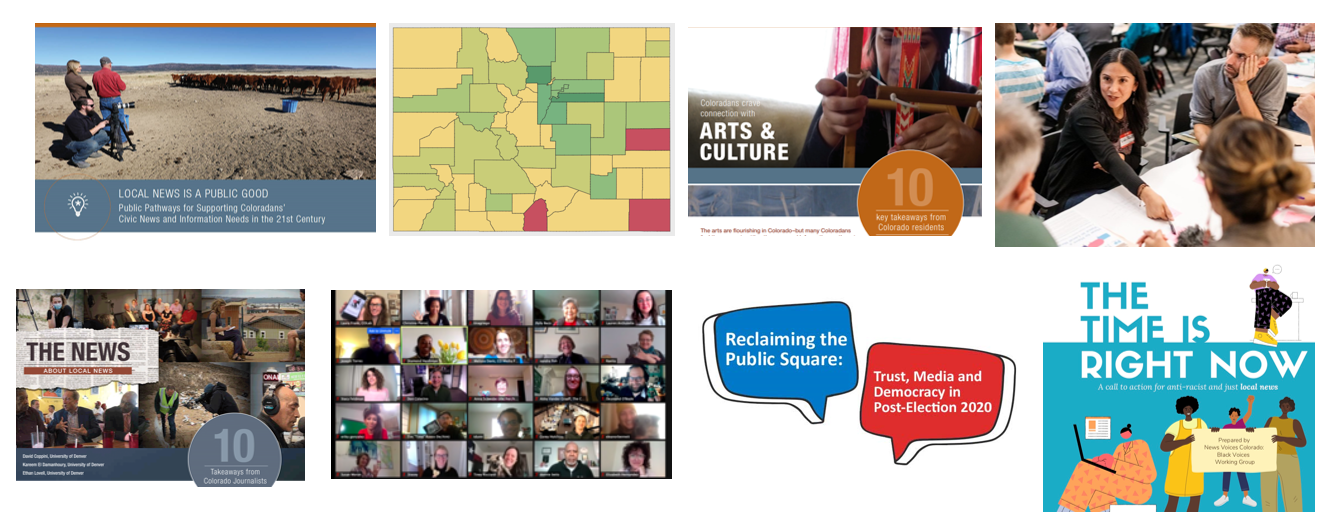Melissa Milios Davis
Director, Colorado Media Project
Vice President for Informed Communities, Gates Family Foundation
As a former journalist, I joined Gates Family Foundation in 2017 knowing firsthand the challenges facing local civic news. For a decade starting in the mid-‘90s, I had worked on both the digital and print sides of local papers from coast to coast. Even then, the sharp decline in advertising revenue and rapid changes in digital delivery were transforming our industry and challenging our ability to cover and reach our communities effectively.
Yet for most residents of Colorado, the disappearance of local civic news has been almost imperceptible amidst the barrage of digital distraction. Until recently, few recognized how profoundly the loss of trustworthy sources of local news and information can impact our daily lives and communities.
So back in the summer of 2018, when Denver Post journalists made national headlines with a gutsy call for help, it was a catalyzing wake-up call for civic-minded Coloradans. In response, a broad-based coalition of civic leaders, students, academics, philanthropists, journalists, business leaders, technologists, national thought leaders, and local residents came together to launch the Colorado Media Project. The goal? To address, with urgency, the disturbing expansion of local news deserts, and the negative impact on Colorado and its residents.
SINCE THEN, WE’VE TRIED A FEW THINGS
While many groups and individuals are hard at work across the sector, for the past 3.5 years the Colorado Media Project has attempted to serve as a center of gravity for engaging non-journalists — especially those from underserved communities — in this pivotal time for the future of local civic news. We see our role as helping to catalyze, fund, and advocate for innovations that make Colorado's local news ecosystem more sustainable, collaborative, trusted, equitable and accountable to the public it serves.
Originally launched by JB Holston as a project of the University of Denver with support from Gates Family Foundation, CMP has operated since January 2020 as a fiscally sponsored project of Rose Community Foundation, with other local and national foundations more than tripling Gates’ original investment in tackling these issues. Throughout, CMP has maintained a commitment to open-source learning and a spirit of optimism during an otherwise very dark time for local news and our democracy in general. Advised by a strong group of local leaders and national experts since 2019, CMP has been recognized nationally and even internationally as an example of providing place-based solutions to the information crisis facing local communities. We’ve done this by:
Conducting research to inform practical, scaled solutions
that better meet Colorado’s information needs
CMP kicked off the project with large-scale audience research, asking more than 2,000 Colorado residents (twice!) where and how they get their local news, what topics they care about most, which outlets they pay for – and why. We synthesized journalist surveys and industry data that, for the first time, described the scale of the challenges in Colorado, including a 40+ percent decline in journalists covering local communities since 2010, nearly one in five newspapers closing up shop since 2004, and one-quarter of Colorado’s newspapers now controlled by hedge funds. We convened experts to identify viable public policy solutions, and joined with Free Press and the Colorado News Collaborative to support working groups of community members and journalists of color who are demanding a more inclusive, just, and solutions-oriented future for local news.
Launching and supporting efforts that increase
collaboration, innovation, equity and trust in local news.
Since 2018, CMP has incubated a number of path-leading projects. These include the #newsCOneeds campaign and matching grant program that helped 24 nonprofit and locally owned Colorado news outlets raise more than $578,000 from 5,277 individuals in 2020. We stood up the Informed Communities Fund and provided $135,000 in responsive grants to newsrooms serving communities of color during COVID, and this January announced nearly $1 million more to support journalists, newsrooms and innovators who are advancing equity in local news. And CMP joined with the Colorado Press Association, The Colorado Independent, and eight other founding partners to incubate and launch the Colorado News Collaborative. COLab is now an independent, nonprofit with a staff and community-led board that is dedicated to building capacity among 150+ partner newsrooms for better news, more trust, and faster innovation through the power of collaboration.
Rallying local and national support for
media transitions, innovation and stronger public service.
Finally, CMP has become an ally for mission-aligned local media outlets navigating ownership transitions, growth and innovation opportunities. In 2019, CMP rallied local funders to support Colorado Public Radio’s acquisition of the digital news site Denverite. In 2021, CMP’s philanthropic partners from The Colorado Trust, Gates Family Foundation, and the American Journalism Project made impact investments that backed the acquisition of Colorado Community Media – a family-owned network of 24 local newspapers serving 330,000+ residents in eight counties in and surrounding Denver. The deal resulted in establishment of the Colorado News Conservancy, a joint venture of the nonprofit National Trust for Local News and The Colorado Sun that stands poised to help more communities keep local news in local hands. CMP leaders also have supported the strategic planning and growth of The Colorado Sun since its launch in 2018, and recently helped to raise a new, multi-million dollar round of support from local impact investors.
2021 Colorado Media Project grantees
WHAT WE’VE LEARNED WILL KEEP US BUSY
While together, with partners, we’ve made some progress toward a more collaborative and responsive local news ecosystem in Colorado, the existential challenges that continue to face the field couldn’t be more urgent. The pandemic and fractious national politics have exposed the cracks in our democracy. Now more than ever, Coloradans need reliable access to trustworthy, nonpartisan local news, delivered through modern distribution channels that meet them where they are. While it is nearly impossible to predict what the state’s local news and information ecosystem will look like in five years, we’ve learned that these trends will keep things interesting:
The rise of the creator: The days when individual news outlets were the remote gatekeepers of facts and information are gone forever; “new power” media models where individuals are actively producing, sharing, and participating in news are on the rise. Nontraditional news providers — from local politicians and government agencies to neighborhood groups, faith leaders and nonprofits — have their own multi-channel strategies and are competing with 100+ year old institutions for audience. Especially as media outlets reckon with a legacy of harm to communities of color, the creator culture and easy-to-use technology tools have democratized who can be a storyteller – for better and for worse.
Media fragmentation, disinformation, and polarization: For many Coloradans, media fragmentation is causing digital overwhelm, reinforcement of entrenched beliefs, and retreat into some of the darkest corners of the internet. Thanks to sophisticated data gathering and targeting by tech platforms, our digital media diets grow increasingly narrow as we are served more of what keeps us scrolling and clicking. Angry rhetoric and clickbait headlines inspire more “engagement” — and more eyeballs mean more money for platforms. Fringe beliefs gain hold, as targeted disinformation campaigns spread like wildfire. “Mainstream media” is considered the enemy by many on both the far right and far left ends of the political spectrum, and there is significant disagreement on a common source of “truth.”
Platform accountability and taxation: In recent years, tech platforms have come under increasingly intense scrutiny in the U.S. and abroad for their role in a polluted information environment. While legislators debate regulation and taxation, it is unclear whether there is political will to take on the uniquely American big tech entrepreneurs. Actions abroad may be harbingers — the European Union is poised to require more transparency and content moderation from social platforms. Meanwhile, last year Australian lawmakers forced Facebook and Google to negotiate with publishers to provide compensation for their content, which so far has extracted more than $150 million for Australian news organizations. A bipartisan bill active in the U.S. Congress would clear the way for publishers to bargain collectively, and other nations including Canada are advancing their own measures.
Media’s role in a pluralistic democracy: Amidst this upheaval, even political rivals seem to have one thing in common: a feeling of being misunderstood and misrepresented, and a common concern for the future of democracy and civic engagement. In 2020 one study found that more than half of Americans believe that major national media sources have bias specifically against people like them, and 83 percent say they see “a great deal” or “a fair amount” of political bias in national news coverage overall. Yet there is hope: three-quarters of Americans across the political spectrum feel that media bias could be corrected if news organizations hired reporting staffs with more diversity and different backgrounds. And while nearly half of Americans say the news media deserves “a great deal” of blame for divisions, about the same portion of all Americans — and more than 60% of Republicans — say the media could also do “a great deal” to heal political divisions.
Longing for real-world connections and local solutions to global issues: After two years in social isolation, glued to screens and “doomscrolling”, Americans are emerging with an intense desire to connect with loved ones, neighbors, and colleagues. At the same time, there is an urgent need for more empowering, solutions-based narratives for addressing entrenched issues — mental health, racial justice, social-economic inequities, climate change and more — on both the systemic and human or local levels. Local news outlets are poised to seize these opportunities and reclaim their role as the modern “public square” by amplifying important stories and diverse perspectives, curating streams of trusted local sources, and convening difficult conversations in a way that bridges divides and illuminates a path forward.
Digital, public media models gain importance for sustaining civic news: Market forces and technology have carved away all profit centers from the traditional, daily newspaper — from the classifieds (now CraigsList and Facebook marketplace) to auto ads (now Cars.com) to the business listings (now Google and Yelp) to the sports section (now The Athletic and others). What’s left and must be protected is the “red meat” of accountability journalism and civic information that is labor-intensive and costly to produce, but is most critical for the future of public engagement in our democracy. Most local news startups that emerge to fill coverage gaps are selecting digital-only, nonprofit, or public benefit models that focus primarily on civically important topics. Studies show that these models are quickly eclipsing all other types of media (radio, television, even newspapers), in terms of the amount of local civic news they are producing, and the efficiency with which are producing it.
LET’S CONTINUE INNOVATING
We recognize that to have impact, all of these challenges and opportunities must continue to be addressed at scale — and a growing coalition of mission-aligned journalists, funders, policymakers, and capacity-building partners in Colorado and nationwide are poised with innovative ideas and capacity to move toward a better future for informed and engaged communities.
Colorado is in a good position to remain on the forefront of this movement, with strategic support from Colorado Media Project; leadership from the Colorado News Collaborative and strong public service news organizations — especially those serving communities of color — across the state; and an expanding coalition of mission-driven local funders, civic leaders, individual supporters, and local businesses who understand the stakes.
In the coming weeks, we’ll share a bit more about the future of Colorado Media Project — the roles we hope to play as a community-informed funder coalition, and the strategies we’ll prioritize — which have been informed by more listening and learning from our communities and constituents. Stay tuned, and thanks as always for your engagement and partnership.





